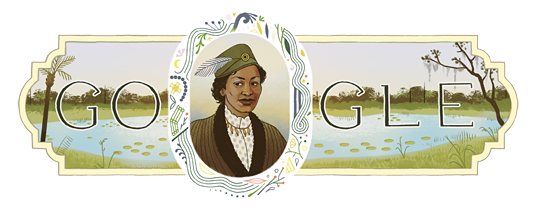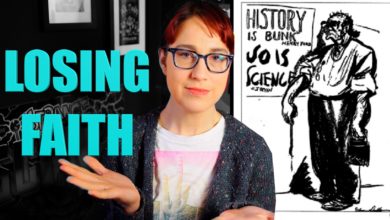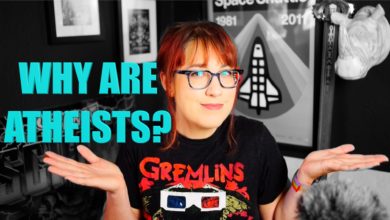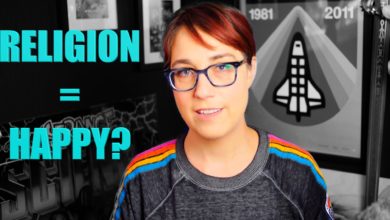Zora Neale Hurston: Prayer Seems to Me a Cry of Weakness

If you saw today’s Google Doodle or read this morning’s Quickies, you know that it’s Zora Neale Hurston’s birthday. Hurston is probably best known as a writer during the famed Harlem Renaissance, with her most famous novel being Their Eyes Were Watching God.
What’s a bit less known (despite this great African Americans for Humanism billboard campaign) is that Hurston was a New Atheist before New Atheism was a thing, despite the fact that she was born the daughter of a Baptist preacher. She expressed skepticism of religion even as a child, and in Dust Tracks on a Road: An Autobiography (from which I took this post’s title), she penned a beautiful summary of what it’s like to be a well-adjusted atheist contemplating her own death:
The springing of the yellow line of morning out of the misty deep of dawn, is glory enough for me. I know that nothing is destructible; things merely change forms. When the consciousness we know as life ceases, I know that I shall still be part and parcel of the world. I was a part before the sun rolled into shape and burst forth in the glory of change. I was, when the earth was hurled out from its fiery rim. I shall return with the earth to Father Sun, and still exist in substance when the sun has lost its fire, and disintegrated into infinity to perhaps become a part of the whirling rubble of space. Why fear? The stuff of my being is matter, ever changing, ever moving, but never lost; so what need of denominations and creeds to deny myself the comfort of all my fellow men? The wide belt of the universe has no need for finger-rings. I am one with the infinite and need no other assurance.
Additionally, Hurston was an anthropologist who worked alongside Margaret Mead while attending Barnard College (Columbia University’s women’s liberal arts school), where she was the only black student in attendance. She did anthropological fieldwork all over the American South, as well as in Jamaica, Haiti, and Honduras.
Hurston was an amazing woman who deserves mention whenever we talk about the great freethinkers in our history. Celebrate her birthday today by getting to know her a little better: here’s a bio from Freedom From Religion Foundation and here’s a collection of recordings Hurston made while conducting folkloric fieldwork in the South.





That’s beautiful.
Intriguing. That passage is beautiful.
It took me a while to figure out what “Go GLE” was all about. ;-)
The cosmology is a little dated*, but the poetry is spot on, and is unaffected by the details of exactly how the Earth originated or how it will end. We now know the planets weren’t somehow hurled out of the Sun** but formed simultaneously with it from a collapsing cloud of the “whirling rubble of space.” But the continued existence of the matter and energy that is the Earth and is us will survive the Sun turning into a planetary nebula and blasting it out into space, perhaps to form part of another planetary system and life in it in the unimaginable*** future.
Though I think I could appreciate the coming dawn a little more if it were warmer than 4° F right now :-)
[*] Nobody criticizes Shakespeare because his cosmology was a little off.
[**] A leading theory at the time she wrote this.
[***] Joni Mitchell (and Carl Sagan) were right: we are stardust.